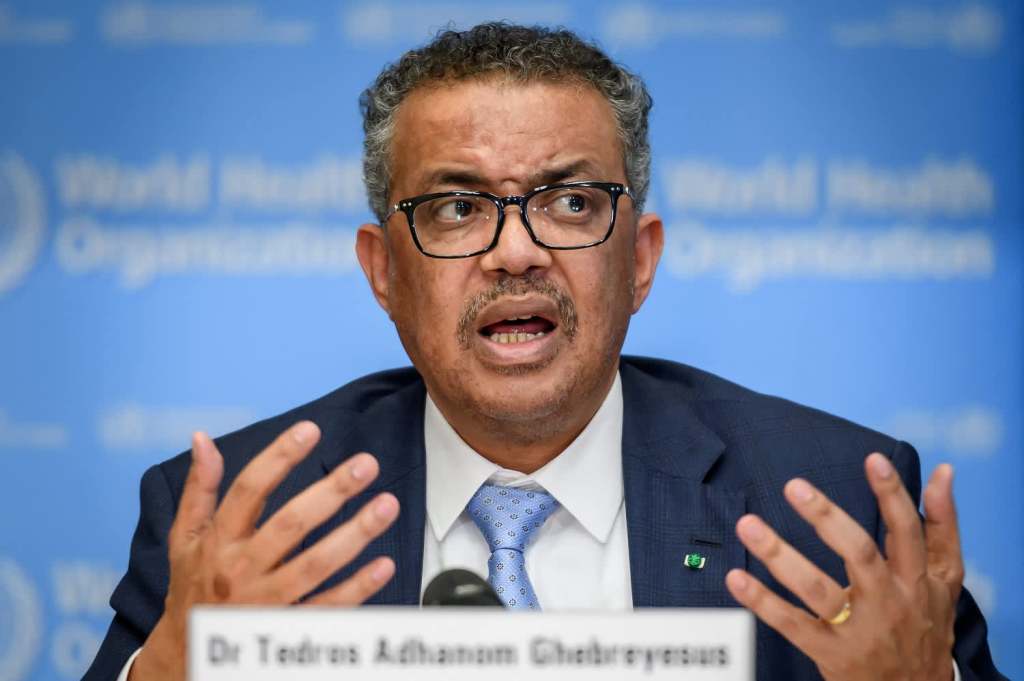The UN health agency’s director-general Tedros Adhanom Ghebreyesus has said the ‘time has come’ for a global pandemic treaty.
Ghebreyesus, the head of the World Health Organisation (WHO), has called for the swift launch of global negotiations to get an international treaty on pandemic preparedness together.
This is something that several member countries and top officials, including Ghebreyesus himself, have been calling for for some time. The treaty is part of a raft of measures that the WHO is keen to implement to develop a more robust global health strategy after the chaotic way the world has handled the pandemic.
So, what exactly is a global pandemic treaty and what would it mean in practice?
What is a global pandemic treaty?
The treaty, in theory, would be a piece of international legislation that would build international resilience to pandemics. That sounds lofty, mainly because it is, but it’s basically a move from the WHO to try and get the world more aligned and focused on preventing and dealing with pandemics than we have so far seen.
The current issues we face with COVID-19 are numerous but it’s clear that health protections and proactive measures have been hampered by a lack of international cooperation.
Vaccine hoarding, arguments over intellectual property concerning the production of vaccines, and a general lack of transparency over what countries are doing has meant that the international response to COVID has not been a unified one and divisions throughout the UN member states are certainly emerging.
In his closing remarks at the WHO’s virtual annual health assembly, Ghebreyesus said that the “lack of sharing of data, information, pathogens, technologies and resources” was a defining characteristic of the pandemic.
The fact that we, as an international collective, don’t have a cohesive plan on dealing with pandemics has made this one worse and the UN is keen to learn the mistakes of the past and put some strategies in place to lessen the impact of the inevitable next pandemic.
What would a pandemic treaty look like?
According to the European Council, one of the key supporters of the pandemic treaty idea, a treaty would “would support international efforts to reinforce global health security.”
In practice, that would mean establishing a framework convention that assigns rights and duties to all signatories to prepare and deal with pandemic events in a more cohesive fashion.
The treaty would likely focus on:
- The early detection and prevention of pandemics
- Resilience to future pandemics
- Response to any future pandemics, in particular by ensuring universal and equitable access to medical solutions, such as vaccines, medicines and diagnostics
- A stronger international health framework with the WHO as the coordinating authority on global health matters
- The ‘One Health’ approach, connecting the health of humans, animals and our planet
If such a treaty was passed by the UN, it would obligate all those who sign it to be on the lookout for the emergence of new diseases and share information and medical supplies when a new pandemic arises.
Would a treaty work?
On March 30, 25 heads of state called for a discussion of the idea of a pandemic treaty which was then discussed at this week’s annual ministerial assembly. Germany, the United Kingdom, South Korea, South Africa and Senegal have all put their support behind the plan however, notably, China, the US, and Russia have not.
Some experts are critical of the plan, however. Clare Wenham, a global-health policy professor from the London School of Economics, questioned in The Guardian why in their responses to COVID-19 “did governments not abide by international law and norms for pandemic management that were already in place?”
Wenham explains that the International Health Regulations (IHR) already contain legal requirements for countries to share information about emerging pathogens and implement public health responses. The IHR is an international treaty first adopted by the World Health Assembly (a body made up of WHO member states) in 1969 and revised in 2005.
There have previously only been two international treaties negotiated through the WHO in its 73-year history. The first is the Framework Convention on Tobacco Control in 2003 and the International Health Regulations in 2005.
A recent study found “no significant change” in the “rate at which global cigarette consumption had been decreasing after the FCTC’s adoption in 2003”. As Wenham points out, the IRH treaty also appears to have been ineffective in increasing cooperation during the current pandemic.
There is also the question of why the WHO is focused on the next pandemic when the current coronavirus has infected more than 170 million people and killed nearly 3.6 million, according to a Johns Hopkins University tally at the time of writing.
On the final day of the week-long assembly, the WHO member states agreed in a 14-page resolution to “strengthen WHO’s capacity to rapidly and appropriately assess disease outbreaks” of possible global concern.
Prime Minister Scott Morrison said that “it’s essential that we strengthen global (disease) surveillance and provide the World Health Organization with the authority and the capacity to do this important job for all the peoples of the world.”
Monday’s resolution also called on all countries to strengthen their core public health capacities, increase their ability to detect new threats and communicate such threats effectively both at home and internationally.
WHO’s emergencies director, Mike Ryan, welcomed the decisions, saying: “Right now the pathogens have the upper hand, they are emerging more frequently and often silently in a planet that is out of balance.
“We need to turn that very thing that has exposed us in this pandemic, our interconnectedness, we need to turn that into a strength,” he said.
The resolution, meanwhile, stopped short of explicitly backing the experts’ recommendation to hand the WHO broader powers to launch investigations or communicate about health threats without waiting for a green light from the countries concerned.
Read more stories from The Latch and subscribe to our email newsletter.







